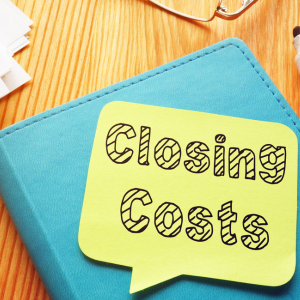
Covina, CA Closing Costs Calculator | California Closing Cost Estimate | Mortgage Closing Costs

Starting your home-buying journey in Covina, California, necessitates a thorough understanding of closing costs to ensure a smooth transaction. Our Covina, CA Closing Costs Calculator provides prospective homeowners with accurate information on potential expenses. By familiarizing yourself with California’s specific closing costs and mortgage requirements, you can confidently navigate the complexities, including title insurance, appraisal costs, and loan origination fees. Use this tool to get a detailed estimate that fits your budget, resulting in more informed decisions and a smoother, more efficient home-buying process.
Understanding Closing Costs in Covina, CA
Understanding closing costs is critical when buying a home in Covina, California. These fees are required to complete a property purchase and vary depending on several factors. Knowing what to expect in terms of mortgage fees and title insurance is critical. We’ll look at California’s most common closing costs, providing insights into typical closing costs. By learning about these fees, you will be able to approach homeownership with confidence and a clear understanding of your potential financial obligations. Let’s look at the details of your closing costs.
| Closing Cost Type | Description | Relevance to Buyers |
|---|---|---|
| Title Insurance | Protects against future claims on the property’s title. | Essential for securing clear ownership rights. |
| Loan Origination Fees | Charges by the lender for processing the mortgage application. | Can be negotiated and affect overall loan expenses. |
| Appraisal Fees | Cost for a professional property valuation. | Ensures that the property’s price aligns with market value. |
| Escrow Fees | Payment for the escrow service handling the transaction. | Important for safeguarding funds until the transaction is complete. |
| Property Taxes | Pro-rated share of the annual property taxes. | Buyers should budget for these as part of initial costs. |
This table provides a concise overview of closing costs, helping buyers prepare for the financial commitments of owning a home in California.
What are the Common Closing Costs in California?
Closing costs are a significant concern for prospective California homeowners. They include various fees associated with the mortgage approval and legal transfer of property processes. These costs typically include title insurance, loan origination, and appraisal fees. Given the competitive nature of the Covina real estate market, understanding these costs can aid in financial planning. Title insurance is essential because it protects your property from future claims and safeguards your investment. Similarly, the loan origination fee, typically a percentage of the loan amount, covers the lender’s processing costs. For homeowners looking to simplify the selling process and avoid many of these fees, cash home buyers in Covina and surrounding California cities can offer a quicker, hassle-free alternative.
Escrow fees are a standard cost for a third-party service that ensures the transaction runs smoothly. The appraisal fee assesses the property’s value and ensures that the loan amount is in line with market value. In some cases, buyers may be charged a credit report fee, which lenders require to determine creditworthiness. Each component protects the lender and the buyer, ensuring a fair transaction.
Furthermore, settlement or closing fees paid to the escrow company ensure that all documentation is correctly managed. Importantly, property taxes may be prorated at closing, requiring buyers to cover any outstanding balances up to the transaction date. Miscellaneous fees, such as notary and recording fees, may be necessary for completing homeownership paperwork. These fees may vary depending on the housing market in California, but planning ahead of time is always advisable. A closing cost calculator can help provide an accurate estimate, allowing buyers to anticipate total costs better.
In this ever-changing ecosystem, it is critical to take into account any lender-specific costs. Each lender’s requirements may vary, affecting overall affordability. Engaging with these elements provides prospective buyers with a comprehensive understanding of financial obligations, allowing them to make informed decisions. Overall, understanding these closing costs ahead of time will make the homeownership transition easier by providing clarity and confidence.
Breaking Down Typical Closing Expenses
Breaking down the typical closing expenses of a Covina home purchase can demystify the complex closing process. These expenses form a crucial part of real estate transactions in California. First, one of the most significant expenses is the mortgage or discount points. These prepaid interest costs can help lower your interest rate over the loan term. Opting to pay points could save substantial amounts in interest, depending on how long you plan to stay in your home. This decision should involve weighing the initial expense against long-term savings.
A pivotal closing expense is homeowners’ insurance. This protects your investment against unforeseen damages and is typically required by lenders before the loan is advanced. Furthermore, private mortgage insurance (PMI) might be essential if your down payment is less than 20%, adding to your recurring monthly costs. As a rule, safeguard assurance through insurance to dodge potential liability. Next, we have underwriting fees, covering the lender’s costs for determining your credit risk. These and insurance form most of the financial requirements demanded upfront.
Aside from these, various administrative fees can accumulate. These include document preparation, flood certification, and pest inspection fees. While each fee may appear minor on its own, when combined, they add up to the total closing costs. Furthermore, buyers should be aware that each property transaction may incur additional costs, such as homeowners’ association transfer fees for properties in controlled neighborhoods.
Many buyers use closing cost estimates or calculators to help them avoid unexpected costs. These tools provide personalized estimates based on loan details, property specifics, and current mortgage rates. They are invaluable budgeting and financial planning tools throughout the home-buying process. Finally, by understanding and breaking down these common closing costs, buyers gain knowledge, resulting in a smoother, more predictable buying experience in Covina and elsewhere.
Using a Closing Costs Calculator Effectively

When purchasing a home in Covina, CA, it is critical to use a closing cost calculator to properly plan your finances. These calculators are designed to estimate the various fees you will incur, allowing you to budget your total financial outlay. Understanding how to interpret the results can help to simplify mortgage transactions, making the path to homeownership clearer. This tool enables you to make informed decisions about loan amounts and lender rates. Explore how these calculators work and discover how Blue Wave Investments can help you navigate closing costs with confidence.
How to Use a Closing Cost Calculator for Accurate Estimates
Getting accurate estimates with a closing cost calculator requires a few strategic steps. First, gather important information about the property you intend to purchase. To function correctly, the calculator requires information such as the purchase price, loan amount, and desired loan term. It is essential to enter your estimated mortgage rates because they significantly impact overall costs. Choose the calculator that best suits your needs, as some offer more detailed options to account for insurance fees or lender-specific costs. Inputting accurate data into a cost calculator yields a realistic forecast that resembles the closing statement you’ll eventually receive from your lender.
After entering all of the necessary information, the closing cost calculator will calculate how much you need to pay. Title insurance, appraisal fees, underwriting fees, and escrow services are all examples of these expenses. This calculator’s closing process simplifies a difficult task by displaying all of the associated fees. Also, keep an eye out for new lending rules or fees that may apply only to California real estate, such as additional taxes or insurance requirements. If you are aware of these facts ahead of time, you will not be surprised. A full closing cost calculator also displays potential benefits, such as tax breaks or incentives, allowing you to see the big picture of your finances.
To improve accuracy, you must understand the nuances of the calculator’s output. The estimate provided should serve as a starting point for discussions with your lender. They can provide insights while accounting for any property-specific factors or rate fluctuations that may occur. Using the calculator as an informed starting point allows you to negotiate with greater confidence and clarity. Always compare your expectations to the actual loan estimates provided to ensure they match lender offers. The estimate can help you choose the best mortgage package for your financial goals by guiding discussions about the most favorable loan rates available.
Benefits of a Closing Costs Calculator for Buyers
A closing costs calculator has numerous advantages, the most important of which is that it brings clarity to the otherwise complex world of home buying. These calculators are an essential tool for prospective buyers to understand the financial landscape and reduce anxiety about the unknown costs of real estate transactions. Buyers can gain a better understanding of their potential debt by entering specific information like the proposed purchase price and loan amount. This understanding enables better budgeting and financial planning from the start of your homeownership journey.
These calculators improve decision-making by allowing potential homeowners to compare their options using tangible numbers. For example, they shed light on how different purchase prices affect closing costs and how switching lenders can change the dynamics due to different rates and fees. Using a cost calculator effectively demonstrates how these elements interact, preventing buyers from underestimating significant costs associated with loan agreements and insurance premiums. This prediction accuracy is critical, as it helps buyers avoid overextending their budgets and ensures that the chosen mortgage aligns with their long-term financial goals.
The calculator’s real-time capabilities allow you to quickly adjust scenarios to see how purchasing options or market shifts affect your potential costs. This adaptability has significant benefits, especially in volatile markets where rates and property values fluctuate rapidly. Buyers with a tool that reflects these changes can remain agile in their decision-making while remaining confident that their financial strategies are sound. Furthermore, the tools frequently include provisions for estimating additional benefits. During negotiations, they may consider potential savings from mortgage interest deductions or seller concessions.
Using a closing cost calculator effectively simplifies the home-buying process. It helps buyers create a more realistic budget and gives them a better idea of what to expect financially. Given homeownership’s significant investment, the ability to effectively plan for all contingencies is invaluable. Finally, these calculators contribute to a smarter purchasing experience by guiding buyers to make informed decisions that reflect both their immediate capabilities and long-term goals. Using a calculator for financial planning can help you take a more informed and proactive approach to purchasing your dream home.
Factors Influencing Your Closing Costs
Any homebuyer in Covina, CA, should understand the factors influencing closing costs. These costs vary greatly depending on the loan amount, fees, and property details. Whether calculating lender fees or considering insurance costs, each component is critical in determining your final outlay. We’ll look at how the loan amount affects your closing fees and other expenses that may arise during the mortgage closing process and provide tips on managing these financial obligations effectively. For sellers seeking a quick and straightforward transaction, cash home buyers in Los Angeles and other cities in California can help simplify the process and reduce additional expenses.
The Impact of Loan Amount on Closing Fees
The loan amount is a significant factor in homebuying closing costs. A larger loan usually means higher closing costs due to most lenders’ percentage-based fees. Loan origination fees, which cover the lender’s administrative costs, are usually a percentage of the loan amount. The larger the loan, the more these fees may be. Larger loans may have higher interest rates, increasing costs over time. Mortgage insurance, another common cost, may rise with the loan amount, especially if your down payment is less than 20%. This insurance, essential for lender protection, affects your payment structure.
In addition to these direct effects, the loan amount affects title insurance and escrow fees, which protect your investment. Title insurance prevents others from claiming ownership, while escrow fees manage legal documents. Both are proportional to the loan amount and can significantly increase financial stress. Due to complexity and responsibility, escrow companies may charge more for larger loans. It is interesting how banks may offer different rates based on loan amount, sometimes offering better terms for larger loans to attract high-value clients. Thus, knowing your desired loan amount is crucial for planning closing costs and negotiating terms with your lender.
Don’t overlook the long-term savings of strategic loan amount decisions. Paying mortgage discount points at closing can lower your interest rate over the life of the loan, which is beneficial for long-term homeowners. However, this upfront payment can be large, increasing closing costs. Although not directly related to the loan amount, property taxes are a significant factor in calculating total ownership costs. Using a closing costs calculator can show how loan amounts affect these taxes over time. Understanding how the loan amount affects closing fees helps you plan your finances and avoid surprises.
Other Costs to Consider in Your Mortgage Closing
Aside from the loan amount, there may be additional costs associated with the mortgage closing. Homeowners insurance is one of these expenses. It is usually required to protect the property from damage that the owner did not anticipate and to satisfy the lender. Lenders frequently require this policy to be paid for in advance, which increases closing costs. The appraisal fee is another important cost that must be paid to ensure that the property’s value matches the loan amount. Both the borrower and the lender must pay this fee to ensure that the property is worth the money. Administrative costs, such as those for document preparation and processing, may also be required and will be added to the total amount paid at closing.
Interest rates, which are also important, can also change the final count. The rate your bank or lender sets will decide how much you have to pay each month. If you choose to lock in a certain rate, you may have to pay fees up front. In a market that is going up, locking in a rate can be very helpful, but this peace of mind usually costs money. Banks may also charge closing costs that include underwriting fees, which pay for checking your credit history and ability to pay. Because of this, it’s a good idea to ask about each charge in your lender’s financial disclosure to make sure you know exactly what you’re paying for.
Property taxes are another important cost that is often prorated and collected at closing. Depending on the terms of the agreement, you may be liable for taxes that have already accrued but have not been paid. Similarly, buyers may encounter escrow adjustments, which ensure that there are enough funds to cover taxes and insurance when they become due. Furthermore, legal fees may apply, especially if unique property issues necessitate additional consultation and document review. In some cases, buyers may negotiate with sellers to cover some of these closing costs, which is a common practice when market conditions allow. A closing costs calculator can assist you in estimating potential costs and avoiding underestimating financial commitments. Prospective homeowners who understand these various components can approach the closing process with confidence, knowing they have the knowledge they need to manage their expenses and make wise financial decisions.
Tips for Reducing Your Closing Costs

Navigating the complexities of closing costs in Covina, CA, can be difficult for many homebuyers. However, by taking strategic steps and making informed decisions, you can significantly reduce these costs, resulting in a more seamless transition into homeownership. This guide will introduce effective cost-saving strategies, such as understanding lender fees, using a cost calculator, and effectively negotiating with banks. We want to give you the knowledge you need to reduce your financial outlay during the home-buying process, allowing you to invest in your future confidently.
Cost-Saving Strategies for Homebuyers
When purchasing a home in Covina, California, careful planning can significantly reduce closing costs. It is critical to begin by thoroughly understanding and reviewing all aspects of your closing costs. One effective strategy is to compare different lenders’ rates and fees. Collecting quotes from multiple lenders enables you to identify the most cost-effective options and then use that knowledge to negotiate better terms. In some cases, having a good credit score can result in lower interest rates and fees, emphasizing the importance of keeping a positive credit history when purchasing a home.
Another key strategy is to use a closing cost calculator. These calculators can provide a personalized estimate of potential expenses based on various variables, including loan amount, interest rates, and insurance fees. Homebuyers can avoid surprises at closing by getting a clear picture of what to expect. These tools also allow for adjustments based on various scenarios, such as changes in loan terms or property specifics, allowing you to make better financial decisions. Understanding these estimates will allow you to approach the closing more confidently and be prepared to handle the numerous fees involved.
Negotiating with the seller to cover some of the closing costs is another effective way to reduce them. This strategy, also known as seller concessions, involves asking the seller to bear some financial burdens as part of the final sale agreement. This negotiation is especially effective in buyer’s markets, where sellers are more likely to compromise in order to complete a transaction quickly. Furthermore, some lenders offer lender credits, which have a slightly higher interest rate in exchange for lower upfront costs. While this may increase monthly payments, it reduces the amount required at closing, which can be beneficial when liquidity is limited.
Homebuyers should also consider negotiating with their lender to eliminate specific fees, such as the loan origination fee. It may result in a slightly higher interest rate, but it reduces costs immediately and gives you some breathing room when buying your first home. It is also critical to review every aspect of the closing statement to ensure that there are no additional fees. If you encounter any problems, you should notify the lender as soon as possible. Finally, learning about state-specific financial aid programs that can assist with closing costs can make the process even more affordable. Using these tips and tricks, you can significantly reduce your closing costs and focus on your new home and future. If you’re considering selling instead of buying, learn more about how our process works to see how you can save time and money.
FAQs
What are closing costs in Covina, CA?
Closing costs are necessary to finalize a property purchase. They include title insurance, loan origination charges, appraisal fees, and other administrative costs.
How can a Closing Costs Calculator help you purchase a home?
A Closing Costs Calculator estimates the various fees you’ll encounter, helping you anticipate your total financial outlay. By gathering vital information such as the purchase price and loan amount, the calculator offers a personalized estimate for budgeting and financial planning.
What are some common closing costs in California?
Common closing costs in California include title insurance, escrow, appraisal, and loan origination fees. These fees ensure a secure and legally complete transfer of property ownership.
How can a homebuyer reduce their closing costs?
Homebuyers can reduce their closing costs by comparing lender rates, negotiating seller concessions, opting for lender credits, and utilizing state financial aid programs. It’s also helpful to review closing statements for unnecessary charges.
Why is it important to understand the loan amount’s influence on closing costs?
Understanding how the loan amount affects closing costs is crucial, as costs like loan origination fees are often percentage-based. A larger loan can lead to higher closing costs and interest rates, influencing your total financial commitment.


